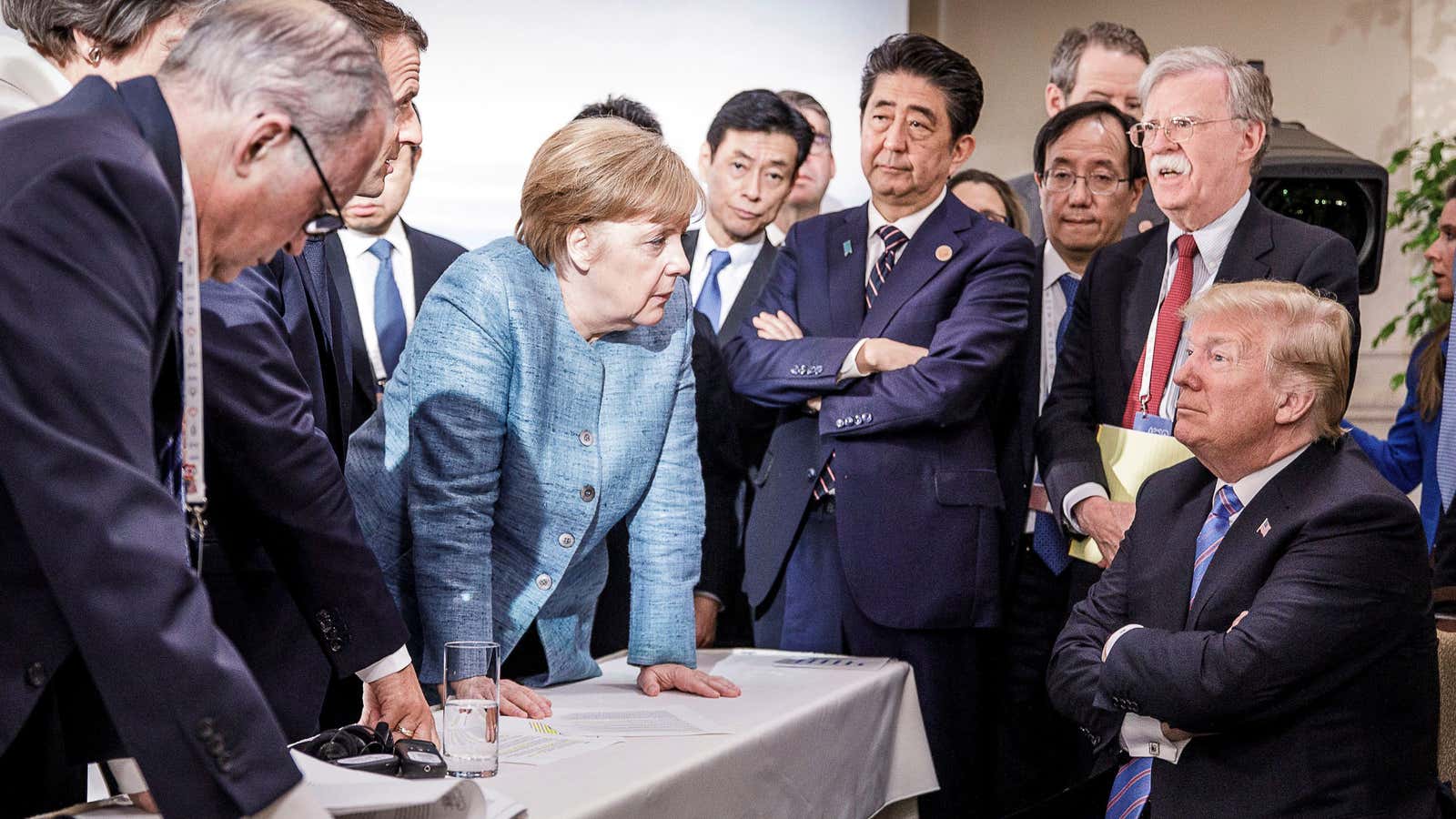The rhetoric that China is poised to fill the global leadership vacuum left by Donald Trump’s “America First” policy was represented in a visually compelling way over the weekend.
At the annual G7 summit, held this year in Canada, Trump clashed with fellow world leaders over tariffs and trade, and eventually withdrew his endorsement of the group’s joint statement. One of the most awkward moments of the gathering was captured in a photo posted by German chancellor Angela Merkel on her Instagram account that has quickly become an internet classic. In it, Merkel, with other world leaders standing around her, stares coldly down at a seated Trump, who has his arms crossed in apparent defiance.
Meanwhile, the scenes were quite different at a weekend summit of the Shanghai Cooperation Organization in China. The SCO is a Eurasian political, economic, and security organization founded in 2001. It’s viewed by some as a counterbalance to NATO and includes among its eight members Russia, Kazakhstan, and as of last year India and Pakistan.
Chinese president Xi Jinping called for “unity and harmony” on global affairs, including free trade and combating terrorists, among the SCO’s member states. In one photo, Xi and Russia’s Vladimir Putin, with smiles on their faces, lead other world leaders to stride into a dining hall. In another, the two autocrats drink what appears to be Chinese liquor together, apparently in a great mood.
The contrast was of note to many China watchers:
Chinese state media pounced on the discrepancy, too, using it as an opportunity to tout China’s global role:
“Against the backdrop of the chaotic meetings of the G7 of the West, the SCO summit in Qingdao was particularly fruitful, and caught the world’s attention,” said an editorial (link in Chinese) in state tabloid Global Times published yesterday (June 10). “Unilateralism is strong on the surface, but in reality it’s difficult to sustain.”
Since last year’s Davos, Xi has positioned himself as the inheritor of America’s leadership role on issues ranging from free trade to climate change. Increasingly, China seems to believe that other countries should look to it for inspiration on how to manage their political systems, economies, and cyberspace, among other things, despite its approaches running contrary to long-held Western values of freedom and democracy.
